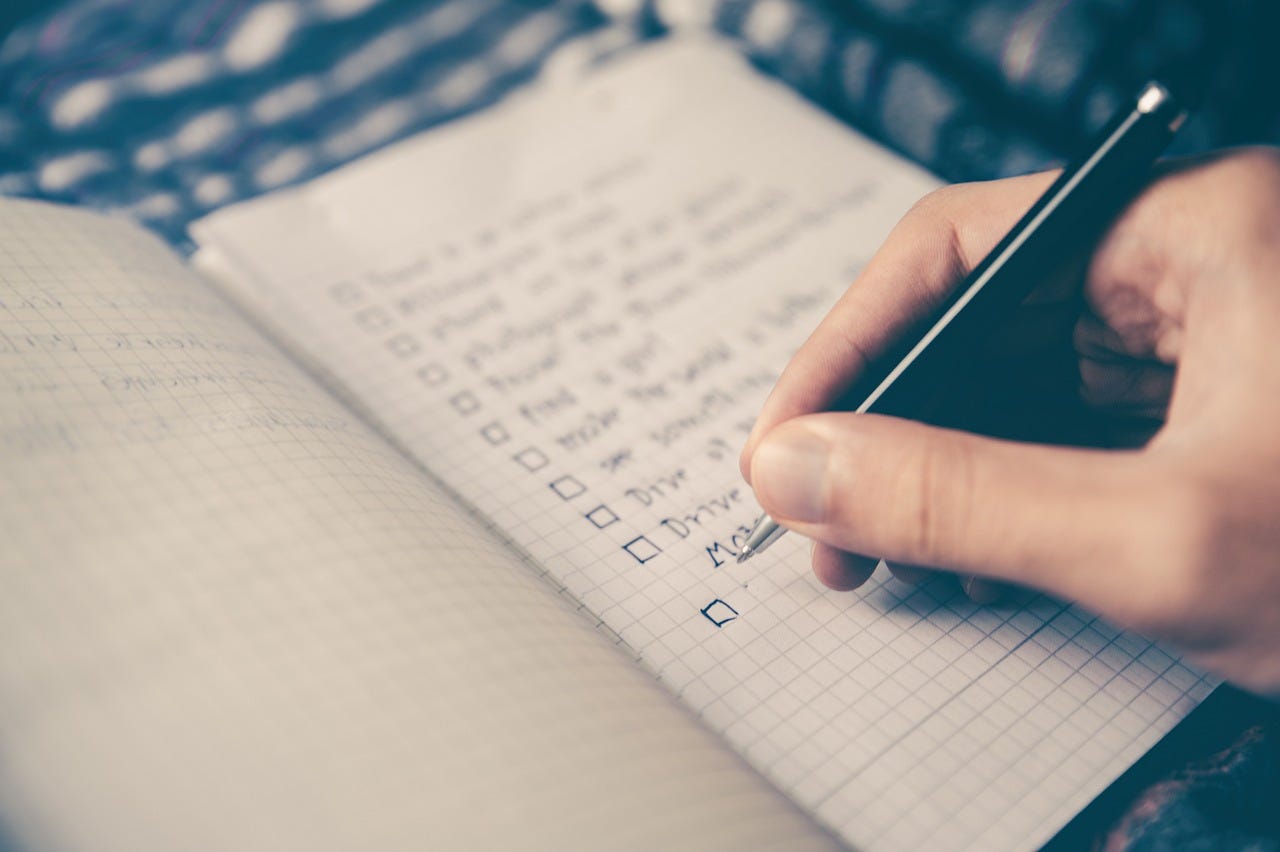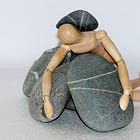Routine
In which we choose to do similar things over and over
In my native language, there is a saying that roughly translates to ‘a donkey does not bump into the same stone twice’. I don’t know about you, but it reminds me of another creature with unruly grayish hair. Einstein. After all, he is rumored to have said:
Insanity is doing the same thing over and over and expecting different results.
Let me burst your bubble, though. Our unruly-haired physicist never said that or many of the other quotes often attributed to him.
Both the donkey and our fake Einstein missed something: sometimes doing the same thing over and over can be a good thing. Practice makes perfect, after all, and what is practice but keep doing the same thing? Side note: the 10,000-hour rule that sets out how much practice makes perfect is probably nonsense.
However, I don’t want to write about practice today. Instead, I want to take a look at another set of actions we perform over and over.
Routines.
Did you just suffer an involuntary shudder? I get it. Routine sounds boring and as we browse our social media feeds and the self-help articles that sneak into the news, we are bombarded with (well-intended?) reminders to get out of our comfort zones, do new things, and never bump into the same metaphorical stone twice.
While those reminders contain a kernel of truth, they implicitly - and unjustly - malign routine.
Before restoring some appreciation for routine, let’s distinguish between habits and routines.
Habits are actions you perform without thinking, whether it’s due to upbringing, compulsion, or specific triggers. Routines, on the other hand, require conscious consideration. They contain actions that you have to choose to do. Over time routines can become habits and usually, because of that initial effort required, habits that were routines first are the helpful type of habits.
As an illustration: here are the daily routines of famous creative people. (Who are you most closely aligned with? I think that, on good days, I lean most toward Kurt Vonnegut.)

Such carefully crafted routines have a measurable and beneficial effect on our well-being. For example, this (admittedly small-scale) 2018 study finds that:
… the degree to which current, naturally occurring, behavior followed a typical routine positively related to participants' momentary feelings of MIL [meaning in life].
Another, older study finds a similar facilitating role for routine when it comes to improving well-being. The hypothesis:
Routine can provide linkages between one’s personal history and one’s ecological, sociohistorical, and cultural contexts throughout one’s life and contribute to a continuous sense of self that is created and reflected through everyday practices. Routine is therefore meaningful and adaptive.
That’s not exactly what the ‘live hard, die young’ crowd wants us to think. We’re supposed to break free from our comfort zones and never do the same thing twice. And yet, having that everyday life routine can be helpful, it seems. FOMO has nothing on a good routine when it comes to the meaning of life…
(Another side note: there’s a recent pushback on Youtube and in social media posts/videos along the lines of ‘follow my morning routine’ or something like that —often, though not exclusively, by young women. Routine is getting its moment in the spotlight, after all. Oddly soothing and oddly successful.)
To return to that last quote, which suggested routines are adaptive. I think that routines also have to be adaptable, because, as with most things in life, routines have a dark side: they can become stifling. You don’t go out with friends because you have an exercise/dietary routine to stick to, for example. If I don't pay attention, I am someone who can fall into that trap. Once upon a time, a stringent, unyielding routine was the only sense of ‘control’ I had in life, and I clung to it, sometimes, sadly, to the point of shutting out everything (and everyone) else. A story for another time, perhaps.
Inventor, actress, and all-round badass Hedy Lammar articulates that concern like this:
Some men like a dull life - they like the routine of eating breakfast, going to work, coming home, petting the dog, watching TV, kissing the kids, and going to bed. Stay clear of it - it's often catching.
That sounds like she hates routine, but there’s something more nuanced in there. Steer clear of routines that are ‘catching’. When your routine controls you rather than the other way around, it’s time for a new routine. It has to be adaptable, remember? A routine needs to fit your life; your life should be pigeonholed to fit your routine.
It’s a tricky balance.
A good start to get there is this Joyce Carol Oates quote (rolls off the tongue nicely, doesn’t it?):
The domestic lives we live - which may be accidental, or not entirely of our making - help to make possible our writing lives; our imaginations are freed, or stimulated, by the very prospect of companionship, quiet, a predictable and consoling routine.
There are things in life we can’t escape from. Taking control (there’s that word again) of those necessities by putting them into a routine can free up some (mental) energy to pursue the things that give us joy. I think that’s a nice balance between having routines and doing random fun and fulfilling stuff.
Now I just have to find that balance.
Related thoughts:
Thanks for reading. Subscribe if you want to make it a routine. 😊







This is awesome. A book recommendation: The Insanity Hoax. It’s a lot like this, but the theme is the hoax that genius and madness are somehow linked when the opposite is true. The most productive people were the ones with the discipline needed to work on tasks regularly for long periods of time.
Having a job, or running a business (I've done both) requires routines in order to be functional. It's also critically important to be flexible, as anyone who has ever flown will agree. Now that I'm in retirement, intuitively it seems like there would be no need for routines. Generally retired people tend to fall in two categories: 1) Vegetate in the proverbial rocking chair, awaiting death, and 2) finally being able to do all the things they've wanted to do. Those in group 1 usually die early, or become a burden on family. Being in the second group, routines are a must for me to accomplish the creative work I had to put on hold for many years. There are also health considerations, like exercise first thing in the morning, to burn fat due to glycogen stores being reduced during sleep. By structuring routine with health goals in mind we avoid wasting time with doctor's appointments.